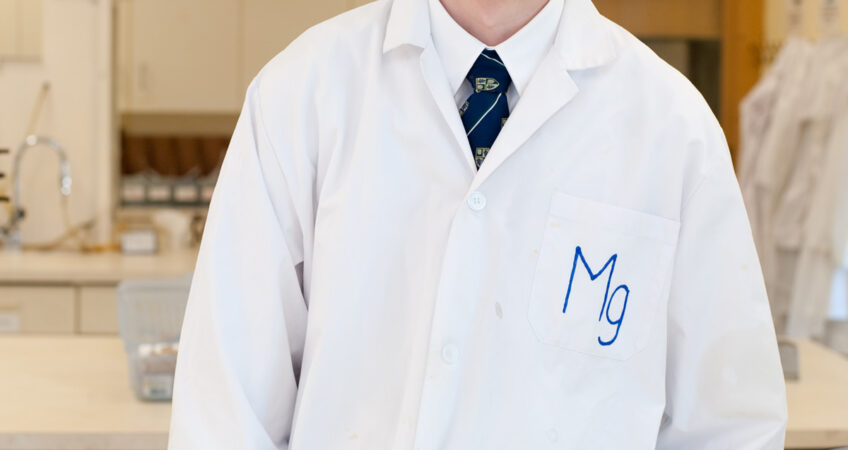The creation of a self diagnostic test for a rare genetic disorder
Nathan Kuehne, a Grade 11 student at Glenlyon Norfolk School (GNS), is already making his mark in scientific discovery. For close to a year, Nathan has been working on his project: Phenylalanine Self-Diagnostic Test for Phenylketonuria Patients. The GNS student recently filed a U.S. provisional patent application for the “Process and Apparatus for Use in Monitoring Phenylketonuria.” Phenylketonuria, or PKU, is a rare genetic disorder in which the body cannot break down the essential amino acid phenylalanine. Phenylalanine is commonly found in protein-rich foods and in some artificial sweeteners. This disease affects 1 in 10,000 to 15,000 newborns worldwide, and if left untreated can lead to intellectual disability, seizures and other damage to the nervous system and brain. Nathan’s test could help those living with this disorder better monitor their levels of phenylalanine, preventing the development of symptoms. Current methods of testing can take upwards of two weeks for the patient to receive the results, while Nathan’s method could be performed by the patient, with results available in less than 10 minutes.
Nathan recently competed in the Vancouver Island Regional Science Fair where he placed first overall advancing him to the Canada Wide Science Fair. At this Fair, he competed amongst 469 participants from all over Canada and received a gold medal placing him in the top ten of all senior competitors. Nathan also participated in the 2015 Sanofi BioGenius British Columbia competition, involving 8 finalists from around the province presenting research projects in the area of biotechnology. He won second place in this BC competition, along with the “Centre for Drug Research and Development Commercialization Prize.” Nathan intends to continue developing his project and prototype, and hopes to publish his work in a peer reviewed journal. Erin Dallin, Nathan’s chemistry teacher and mentor at GNS, explains that “while the research Nathan has completed is ground-breaking in and of itself, the most impressive aspect of all of this is that he has done this work while still attending secondary school. The depth of his research rivals that of post-graduate students and he has the poise and self-confidence to explain his work to a mass audience. I am in awe of what he has achieved.”
Two other GNS students, Alexander Stead and David Weaver, also qualified for the Canada Wide Science Fair after their collaborative project on Iron Nanoparticle Based In-Situ Anti-Coagulant Delivery won them fourth place at the Vancouver Island Regional Science Fair held in April 2015.
View all of the interviews on local media channels:
